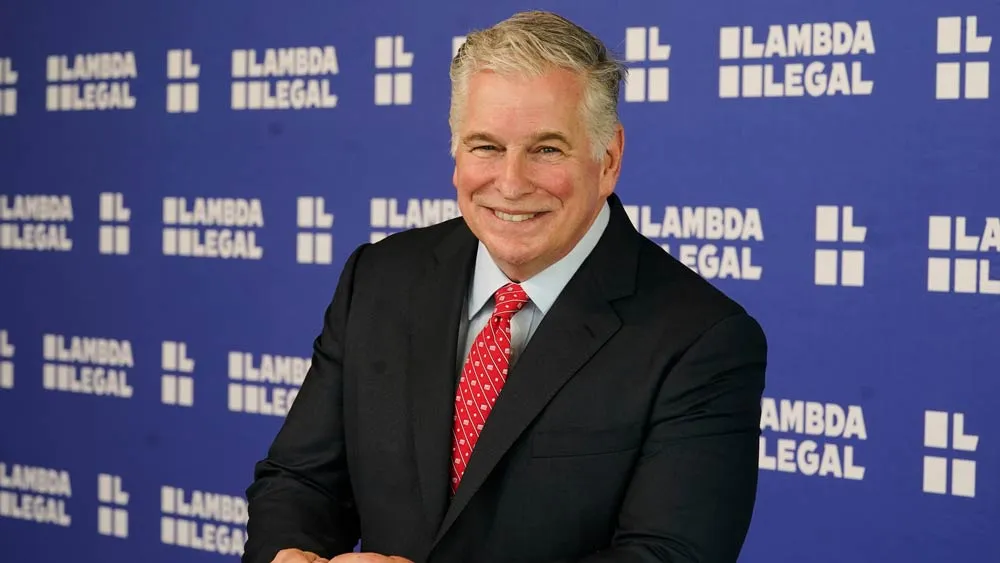May 24, 2016
Vermont Support Group Eases the Stigma Faced by LGBTQ Youth
EDGE READ TIME: 6 MIN.
New Hampshire/Vermont Albert Schweitzer Fellows Ana Rodriguez-Villa and Brendin Beaulieu-Jones are working to address stigma and prejudice against LGBTQ youth in Vermont's Upper Valley with a weekly youth support group at The Junction, LISTEN Community Services' teen center, and by developing a curriculum aimed at preparing medical students to provide informed and supportive care to the LGBTQ community.
"The importance of this work is unmistakable," said Beaulieu-Jones. "LGBTQ youth are at greater risk for depression and suicide, among other health complications. They are a group that requires attention and support both medical and personal.
"Furthermore, I hope our work to develop a curriculum focused on LGTBQ health for first and second year medical students serves as a building block for more formal integration of these topics into medical education," he adds. "Ana and I believe physicians must be prepared to care for this population in a competent and compassionate manner; they must be provided with opportunities to engage with LGBTQ people to practice the skills and competency needed to advance their specific health needs."
Rodriguez-Villa and Beaulieu-Jones, both students at the Geisel School of Medicine at Dartmouth College, were drawn to this population, in part due to personal experiences. Rodriguez-Villa's uncle, a gay man, is one of the most important people in her life, serving as role model, confidant, companion and teacher.
"That he is gay is immaterial to our relationship," she said. "But from him and his experience, I have gained a greater appreciation for the challenges facing LGBTQ people in today's world as well as the power of acceptance. I feel a strong alliance to this community."
As a gay man, Beaulieu-Jones knows about the isolation, anxiety and confusion that many LGBTQ youth experience when coming to terms with their sexual orientation. "Neither my high school nor local community had an appropriate avenue to provide support to LGBTQ youth," he recalls.
It was not until college when he was able to connect with a supportive network, that Beaulieu-Jones fully embraced his identity as a gay man. In hindsight, despite a loving family, he wishes he had been provided a peer network of understanding and had identified role models earlier in his life.
In BRIDGES, the weekly support group they lead, Rodriguez-Villa and Beaulieu-Jones relish the opportunity to offer the support which each and every youth deserves.
"We are amazed with the young teens and adolescents that participate in our programming," he said. "When support from family and friends may be inconsistent or non-existent, it is imperative that kids have support from another network, and it has been touching to see the kids connect on issues they have been struggling with independently, unaware that others in their schools were facing similar challenges."
Running the group has also revealed to Rodriguez-Villa and Beaulieu-Jones that there is still much work to be done to ensure that LGBTQ youth have the support necessary to grow into healthy adults. For example, during one activity, the pair asked group members to respond to statements about their lives and beliefs (i.e. "My friends understand me," "Gender is binary,") by positioning themselves in different areas of the room -- standing against one wall if they "strongly agreed" with a statement, standing against the opposite wall if they "strongly disagreed" and standing in the middle if they didn't have a strong opinion either way. The last statement their young charges were asked to consider was "I feel comfortable in my own skin," at which point an overwhelming number of them shuffled to the "strongly disagree" wall.
"It was powerful to see -- despite their incredible intelligence and openness -- the struggle these kids experience when asked to accept themselves," said Rodriguez-Villa.
That's why Rodriguez-Villa and Beaulieu-Jones are working to incorporate their LGBTQ cultural competency elective into Geisel's curriculum -- an effort that Ana says has been well-received. "It is encouraging to be met with such enthusiasm by both faculty and students," she said.
They're also looking to sustain the Bridges program by recruiting first-year med students to lead the group and fostering continued collaboration with The Junction Teen Center and Upper Valley schools. "There is a clear local need for a safe space for LGBTQ youth to share stories, ask questions and simply connect with each other," said Rodriguez-Villa. "I think there will always be a need for Bridges and believe the group will continue to evolve for years to come."
Both Rodriguez-Villa and Beaulieu-Jones say their Fellowship experience has helped them clarify how they can make service an integral part of their professional careers.
"This project has reinforced my career goals of working tightly with the underserved populations and communities while striving to improve access to care," said Beaulieu-Jones. "As a physician, I aspire to help transform the traditional concepts of medicine; it is not confined to hospitals and other delivery systems, but should be integrated into local communities. Service is an inherent part of the role of a physician, and this experience has highlighted how my interests in community service and medicine can be jointly leveraged to positively impact others."
"This Fellowship has offered a purposeful and structured way to learn about my community and to explore different means of service," said Rodriguez-Villa. "It has allowed me to think about how to incorporate this practice into my professional and personal life in a lasting and meaningful way. I have invested in a project deeply personal to me and have found the experience challenging and motivating. I will not forget how my efforts with Bridges and within my school community have been received and know this will inform professional and personal decisions in my future. With intention and with practice, 'service' has become a lived value."
For more information, visit http://www.listencommunityservices.org/


